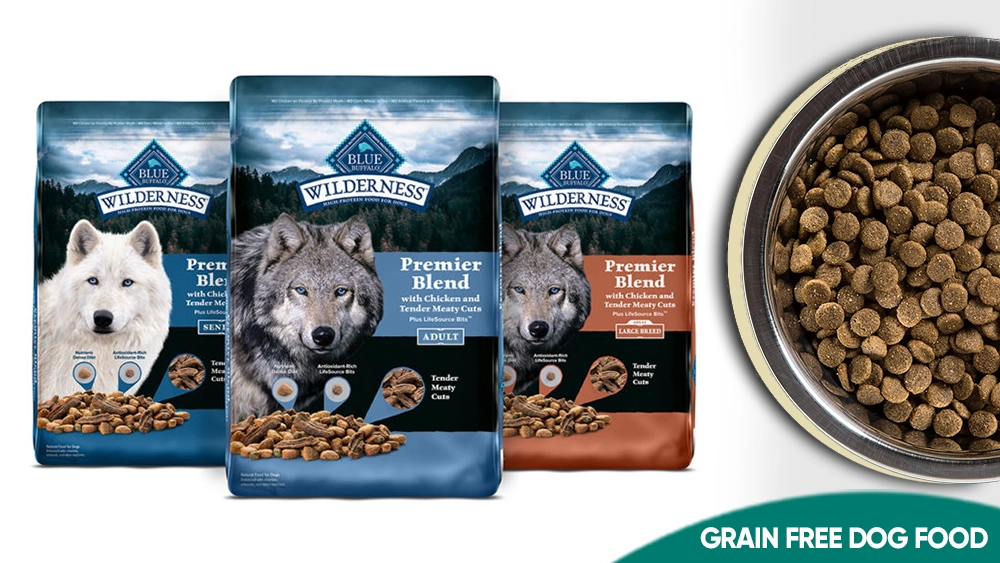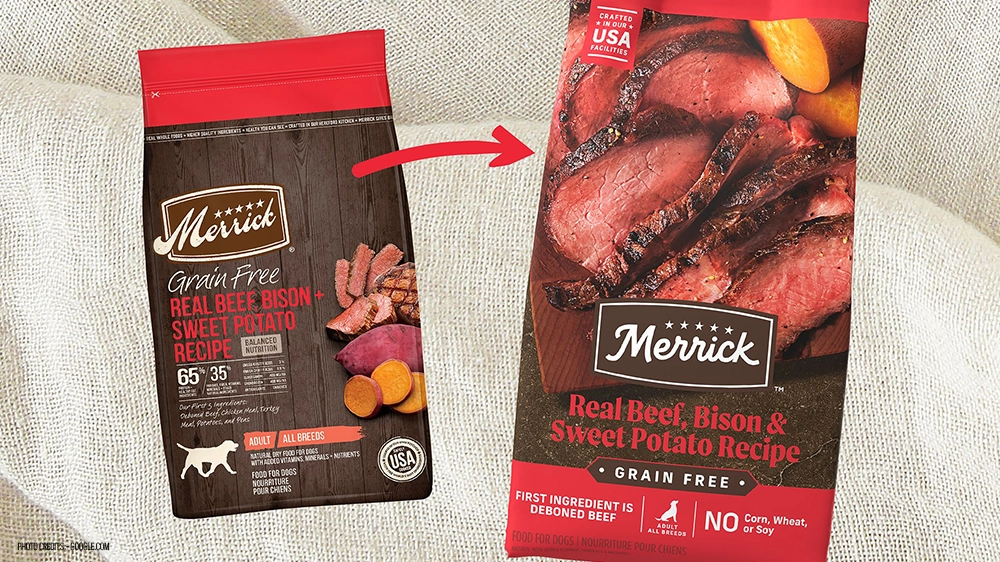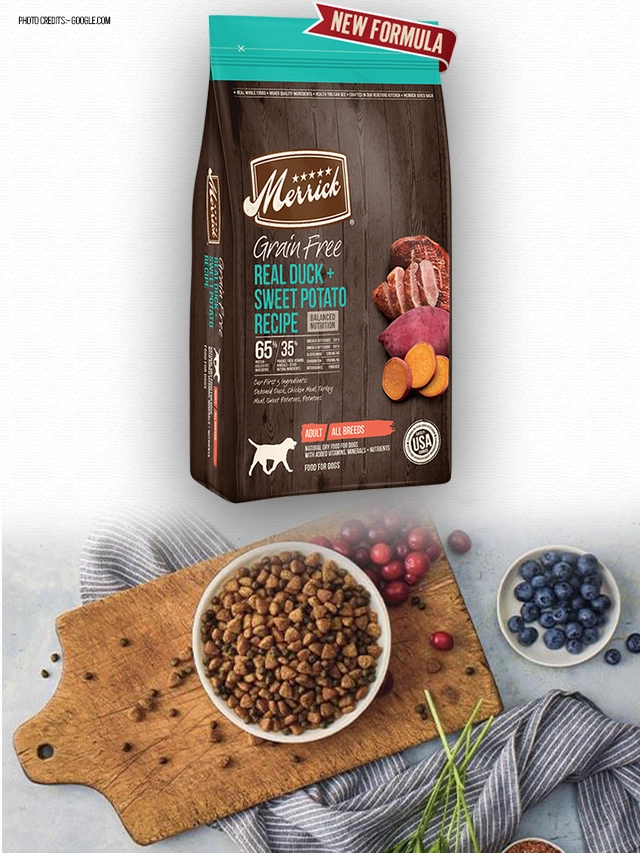
HEALTH BLOG
Grain Free Dog Food Good for Your Pet?
-
Rahul Priydarss
Looking for the best information on Grain Free Dog Food? This blog post explores whether Grain Free Dog Food is a healthy choice for your pet. We break down the benefits and potential risks of going grain-free, including insights into allergies, sensitive stomachs, and overall nutrition. From common misconceptions to expert advice, discover if grain-free diets are right for your dog. Additionally, learn about the top five grain-free dog food brands in the USA, known for quality ingredients and customer satisfaction. Make an informed decision for your dog’s health and well-being with this comprehensive guide.
Introduction of Grain Free Dog Food:
Grain Freedog food is a popular choice among pet owners today, but is it truly the best option for your dog? Understanding the ins and outs of this diet is essential for making an informed decision. Grain Freedog food removes grains like wheat, corn, and rice, which some people believe dogs are unable to digest properly. Advocates claim this type of diet mimics what dogs’ ancestors would have eaten in the wild. However, not all dogs need to avoid grains, and some may even benefit from a diet that includes them. So, is Grain Freedog food worth the hype?
The truth is, Grain Freedog food can be a good option for dogs with specific dietary needs, such as grain allergies or sensitivities, but it’s not a one-size-fits-all solution. Each dog’s nutritional needs are unique, and what works well for one may not work for another. In this guide, we’ll delve deeper into the details of Grain Freedog food, discussing its benefits, potential risks, and how to determine if it’s the right choice for your pet.
What is Grain Free Dog Food?:
Grain Freedog food refers to dog food formulas that omit grains commonly used in pet foods, such as wheat, corn, soy, rice, barley, and oats. These grains are often replaced with alternative carbohydrate sources like sweet potatoes, lentils, peas, and tapioca. The reasoning behind Grain Freediets is that dogs’ ancestors—wolves—consumed primarily animal proteins and fats, with little or no grains. Therefore, some pet owners believe that their dogs, as descendants of wolves, should also avoid grains for better health.
However, it’s crucial to recognize that modern domesticated dogs have evolved to digest carbohydrates, including grains, much better than their wild ancestors. In fact, research shows that grains can provide valuable nutrients, such as fiber, vitamins, and minerals, which contribute to a balanced diet. The key is that Grain Freedoes not necessarily mean better or healthier; it depends on the overall quality of the ingredients and the specific nutritional needs of your dog.
In a Grain Freeformula, you’ll often find higher levels of protein and fat, which can be beneficial for some dogs, especially those with higher energy levels or certain health conditions. But for the average pet, Grain Freeisn’t always necessary. This leads us to the next question: who actually needs Grain Freedog food?

Table of Contents
Who Should Consider Grain Free Dog Food:
Grain Free dog food can be a great option for dogs with specific dietary needs, such as allergies or sensitivities to grains. If your dog has been diagnosed with a grain allergy, Grain Freefood may be an excellent choice. However, true grain allergies are relatively rare in dogs. More often, what is perceived as a grain allergy could be an issue with other ingredients like meat proteins, additives, or artificial preservatives.
Dogs that suffer from grain allergies may show signs of gastrointestinal distress, such as diarrhea, vomiting, or bloating, as well as skin issues like itching, redness, or frequent ear infections. For these dogs, a Grain Freediet could significantly improve their symptoms and overall quality of life.
That said, most dogs don’t need to avoid grains. For the majority of healthy dogs, grains can provide essential nutrients, including fiber that supports digestion and energy levels. Grains like oats, brown rice, and barley are also excellent sources of vitamins and minerals that contribute to overall health. For these dogs, a balanced diet that includes grains can be just as healthy—if not healthier—than a Grain Freeoption.
The Benefits of Grain Free Dog Food:
Grain Free dog food can offer several potential benefits, particularly for dogs with specific sensitivities. Let’s explore some of the main advantages.
Reduction of Allergens: One of the biggest advantages of Grain Free dog food is that it eliminates grains, which can be a common allergen for some dogs. By removing grains from the diet, dogs that are sensitive to grains may experience improvements in digestion, skin health, and coat quality. For example, dogs prone to itching, ear infections, or gastrointestinal problems may benefit from eliminating grains and switching to a Grain Freeformula.
Higher Protein Content: Many Grain Free dog foods have a higher percentage of protein compared to grain-inclusive formulas. This is especially beneficial for active or working dogs, as protein is essential for building and maintaining muscle, supporting a healthy immune system, and promoting a shiny coat. Protein also provides the energy that active dogs need to stay healthy and perform at their best.
Improved Ingredient Quality: Grain Freeformulas often prioritize higher-quality ingredients, such as whole meats, fish, and vegetables. These ingredients provide dogs with essential nutrients like vitamins, minerals, and antioxidants, contributing to overall health. While the absence of grains is not inherently what makes these foods better, the use of premium ingredients can make a difference in a dog’s well-being.
Support for Sensitive Stomachs: Dogs with sensitive stomachs may find Grain Freeformulas easier to digest, especially if they struggle with certain grains. For example, grains like wheat and corn are sometimes harder for dogs to digest and can lead to bloating, gas, or diarrhea. Grain Freeoptions often use alternative sources of carbohydrates, such as sweet potatoes, which are more gentle on the digestive system.
Are There Any Drawbacks to Grain Free Dog Food:
While Grain Free dog food can offer benefits, it’s not without its potential drawbacks. Before making the switch, it’s important to consider the following concerns.
Link to Dilated Cardiomyopathy (DCM): In recent years, the FDA has investigated reports that certain Grain Freediets, particularly those high in legumes like peas and lentils, may be associated with an increased risk of dilated cardiomyopathy (DCM) in dogs. DCM is a serious heart condition that weakens the heart’s ability to pump blood. Although the exact cause is not yet fully understood, some studies suggest that the high levels of legumes and the lack of grains in these diets could play a role. If you’re considering a Grain Freediet, it’s important to discuss this risk with your veterinarian and ensure that your dog is receiving the necessary nutrients, particularly taurine, an amino acid that supports heart health.
Cost Considerations: Grain Free dog food tends to be more expensive than grain-inclusive formulas, often due to the use of higher-quality ingredients and alternative carbohydrate sources. For pet owners on a budget, the price difference can be significant. If your dog doesn’t have specific dietary needs, you may find that a grain-inclusive diet provides the same health benefits at a lower cost.
Potential Lack of Fiber: Grains are a great source of dietary fiber, which is essential for healthy digestion. When grains are removed from a dog’s diet, it’s important to ensure that the food still provides enough fiber from alternative sources, such as vegetables and fruits. If a dog’s diet lacks fiber, they may experience constipation, digestive issues, or even weight gain.

What Should You Look for in Grain Free Dog Food:
If you’ve decided to try Grain Free dog food, it’s essential to choose a high-quality product. Here’s what to look for.
Protein as the First Ingredient: Always check the ingredient list and make sure that a high-quality protein source, such as chicken, beef, or fish, is listed first. Protein is the most important nutrient in a dog’s diet, and it should be the main ingredient in any food, whether Grain Freeor not. Avoid products where fillers, by-products, or grains are listed first, as these are usually lower in nutritional value.
Carbohydrate Alternatives: Since Grain Freeformulas don’t use grains as a source of carbohydrates, it’s important to look for alternative carbs that provide energy and nutrients. Common alternatives include sweet potatoes, lentils, peas, chickpeas, and tapioca. These ingredients are not only easier to digest for some dogs but also offer a variety of essential vitamins and minerals.
Added Nutrients: Look for Grain Free dog foods that are fortified with important nutrients, such as omega-3 and omega-6 fatty acids, which promote healthy skin and a shiny coat. Additionally, make sure the food contains enough fiber, which can come from vegetables, fruits, or other plant-based ingredients, to support healthy digestion.
Grain Freevs. Grain-Inclusive: Which is Better:
The debate between Grain Free and grain-inclusive dog food is ongoing, and the answer often depends on your dog’s individual health needs. Grain Free dog food is ideal for dogs with grain sensitivities or allergies, as it eliminates the potential for allergic reactions or digestive issues related to grains. However, for dogs without these issues, grain-inclusive food can provide essential nutrients, such as fiber and vitamins, that contribute to overall health.
Grains like oats, barley, and rice can be an excellent source of carbohydrates and fiber for dogs, promoting healthy digestion and sustained energy. Additionally, grains provide important vitamins and minerals, including B vitamins and magnesium, which support various bodily functions. For dogs that tolerate grains well, grain-inclusive diets can be a balanced and nutritious option.
How to Transition to Grain Free Dog Food:
If you’ve decided that Grain Free dog food is the best choice for your dog, it’s important to transition slowly to avoid gastrointestinal upset. Abruptly changing your dog’s diet can lead to diarrhea, vomiting, or other digestive issues, especially if they’re not used to Grain Freeingredients.
Here’s how to transition your dog to a Grain Free diet:
Start by mixing a small amount of the new Grain Free food with your dog’s current food. Gradually increase the amount of Grain Freefood while decreasing the amount of the old food over the course of 7-10 days.
Monitor your dog’s reactions during the transition. Watch for signs of digestive upset, such as diarrhea or vomiting, as well as any changes in behavior or energy levels. If your dog experiences any negative symptoms, slow down the transition process or consult your veterinarian.
Provide plenty of fresh water throughout the transition. A change in diet can affect your dog’s water intake, so ensure that they have access to clean water at all times.
Top 5 Grain Free Dog Food Brands in the USA:
Choosing the best grain free dog food for your pet can be overwhelming with so many brands on the market. To help simplify the process, we’ve curated a list of the top 5 grain free dog food brands in the USA that are known for their quality ingredients, nutrition, and customer satisfaction. Each of these brands is trusted by pet owners and veterinarians alike, ensuring your dog receives a balanced and healthy diet.
1. Blue Buffalo Wilderness:
Blue Buffalo is a well-known name in the pet food industry, and their Wilderness line is a top choice for grain-free dog food. The brand emphasizes using high-quality, natural ingredients with real meat as the primary protein source. Their Wilderness formulas are rich in protein, contain no grains, and include healthy fruits and vegetables for added nutrition.
Key Ingredients: Deboned chicken, peas, sweet potatoes, flaxseed.
Why It’s Popular: Blue Buffalo Wilderness offers a variety of flavors and formulas tailored to different dog sizes, ages, and dietary needs. Their grain free recipes are designed to mimic a dog’s ancestral diet, providing protein-rich meals without grains.
2. Taste of the Wild:
Taste of the Wild is another highly regarded grain free dog food brand that focuses on high-quality, nutrient-dense formulas. Their recipes are inspired by a dog’s natural, ancestral diet, with a focus on wild game meats such as bison, venison, and wild boar. Taste of the Wild also incorporates antioxidants and probiotics to support digestive health.
Key Ingredients: Roasted bison, roasted venison, sweet potatoes, peas, chicory root.
Why It’s Popular: The brand is known for using unique proteins that appeal to a dog’s natural instincts, while also supporting digestion and immune health with added probiotics. Their grain free formulas are both affordable and nutritionally balanced.
3. Merrick Grain-Free:
Merrick Grain Free is a premium dog food brand that prides itself on using locally sourced, high-quality ingredients. Their grain free formulas are packed with real deboned meat, poultry, or fish as the first ingredient, and they include plenty of healthy fats and vegetables to support your dog’s overall health.
Key Ingredients: Deboned beef, lamb meal, sweet potatoes, peas, apples.
Why It’s Popular: Merrick is known for its commitment to using real, whole foods without any artificial additives or preservatives. Their grain free options cater to dogs with food sensitivities and offer high levels of protein to support lean muscle growth.
4. Wellness CORE Grain-Free:
Wellness CORE offers a grain free line that focuses on providing balanced nutrition with high levels of protein from real meat sources. The formulas are designed to meet the needs of active dogs, promoting lean muscle development, healthy skin, and a shiny coat. CORE’s grain-free recipes are packed with wholesome ingredients like peas, lentils, and flaxseed for optimal nutrition.
Key Ingredients: Deboned turkey, turkey meal, chicken meal, peas, potatoes.
Why It’s Popular: Wellness CORE is popular for its focus on high-protein, nutrient-rich meals that support overall health and vitality. Their grain free options are particularly beneficial for dogs with sensitivities to grains, and they offer a range of formulas based on life stage and breed size.
5. Natural Balance Limited Ingredient Diets:
For dogs with food sensitivities or allergies, Natural Balance Limited Ingredient Diets (LID) grain free formulas are an excellent choice. These recipes are designed to provide complete and balanced nutrition while minimizing the number of ingredients to reduce the risk of allergic reactions. The grain free LID formulas often use a single source of animal protein and simple carbohydrate sources like potatoes or peas.
Key Ingredients: Salmon, sweet potatoes, peas, canola oil, flaxseed.
Why It’s Popular: Natural Balance is widely recommended for dogs with food allergies or sensitive stomachs due to its limited ingredient approach. Their grain free recipes provide all the essential nutrients without unnecessary fillers, making it easy to manage your dog’s diet and prevent reactions.
FAQs about Grain Free Dog Food:
A1: Grain Free Dog Food is a type of pet food that excludes grains like wheat, corn, and rice, using alternatives like sweet potatoes and peas for carbohydrates.
A2: Not necessarily. While it can benefit dogs with grain allergies or sensitivities, most dogs can digest grains well and may not require a grain-free diet.
A3: In some cases, Grain Free Dog Food has been linked to heart conditions like dilated cardiomyopathy (DCM). It’s important to consult your vet before switching.
A4: It may reduce allergens, improve skin and coat health, and support dogs with sensitive stomachs or grain allergies by offering alternative carbohydrate sources.
A5: Dogs diagnosed with grain allergies or sensitivities may benefit from switching to a grain-free diet. Always consult with a veterinarian before making changes.

-Please remember, to always consult with healthcare professionals or Doctors for personalised advice related to medical conditions.
Conclusion:
In conclusion, Grain Freedog food can be a good choice for dogs with grain allergies or sensitivities, but it’s not necessary for all dogs. For most dogs, grains provide valuable nutrients that support overall health. If your dog has been diagnosed with a grain allergy, switching to Grain Freefood may improve their symptoms and quality of life. However, for healthy dogs without specific dietary needs, a balanced grain-inclusive diet can be just as beneficial. Before making any changes to your dog’s diet, it’s important to consult with a veterinarian to ensure that you’re meeting your pet’s unique nutritional requirements.




